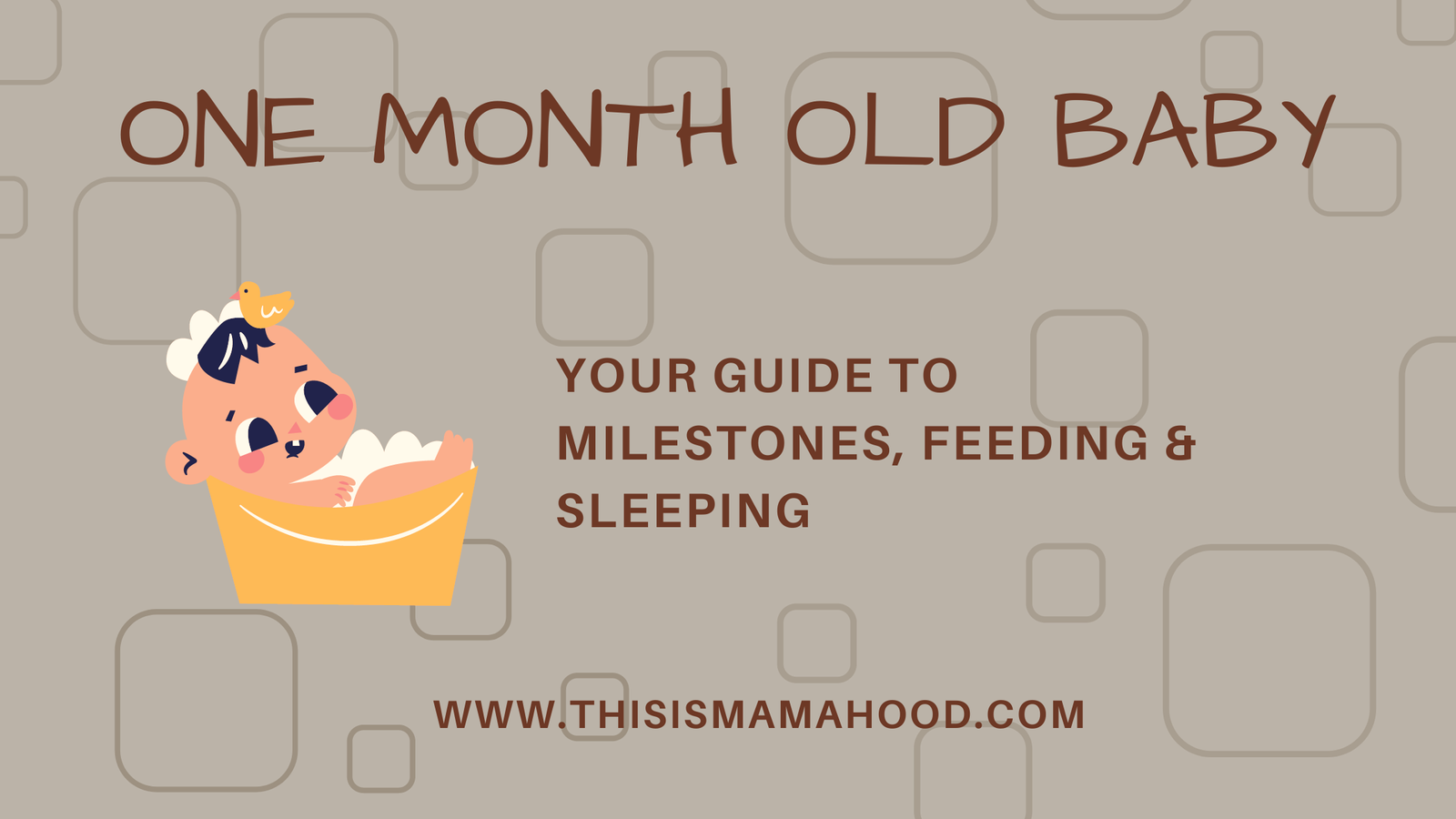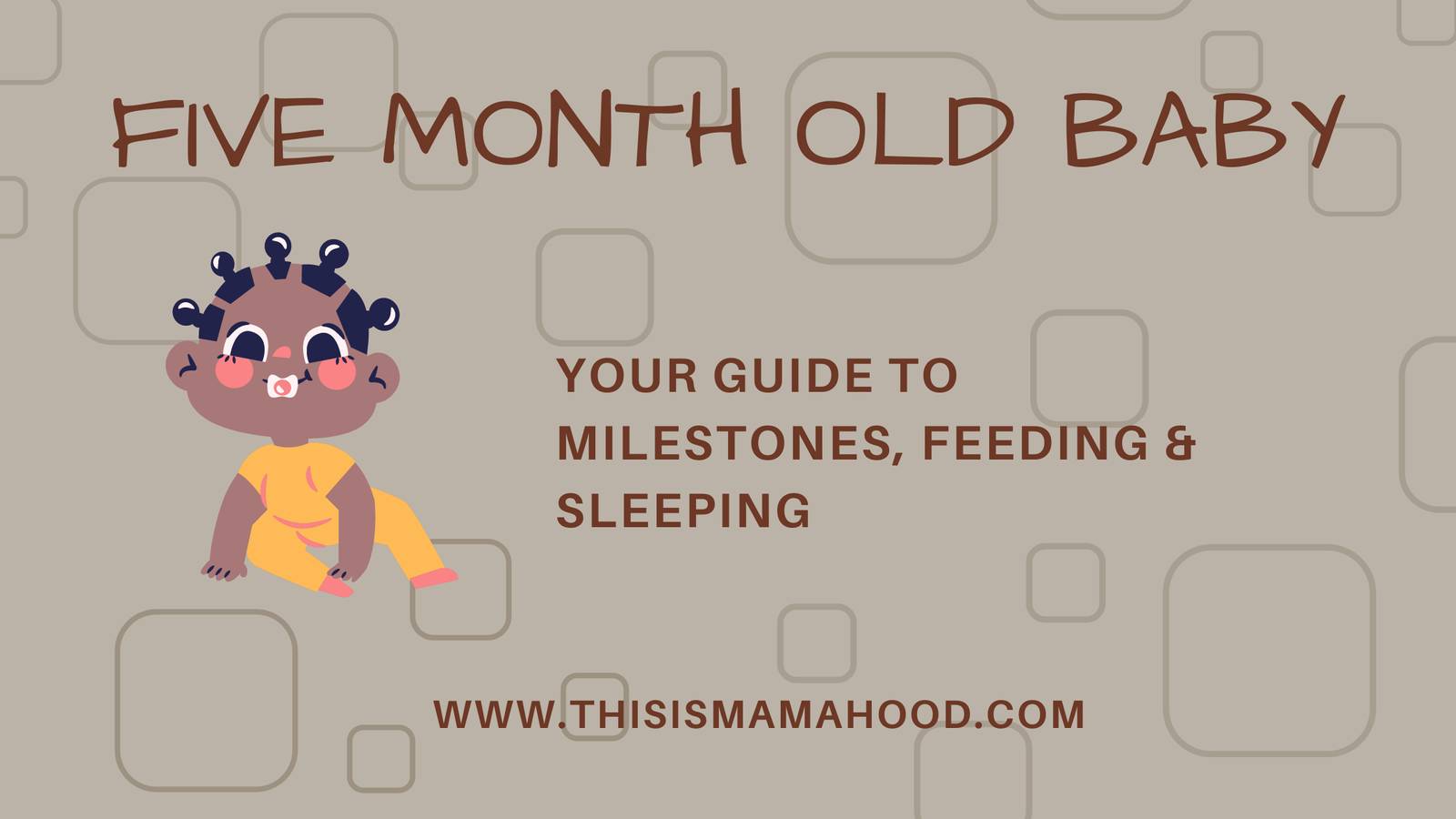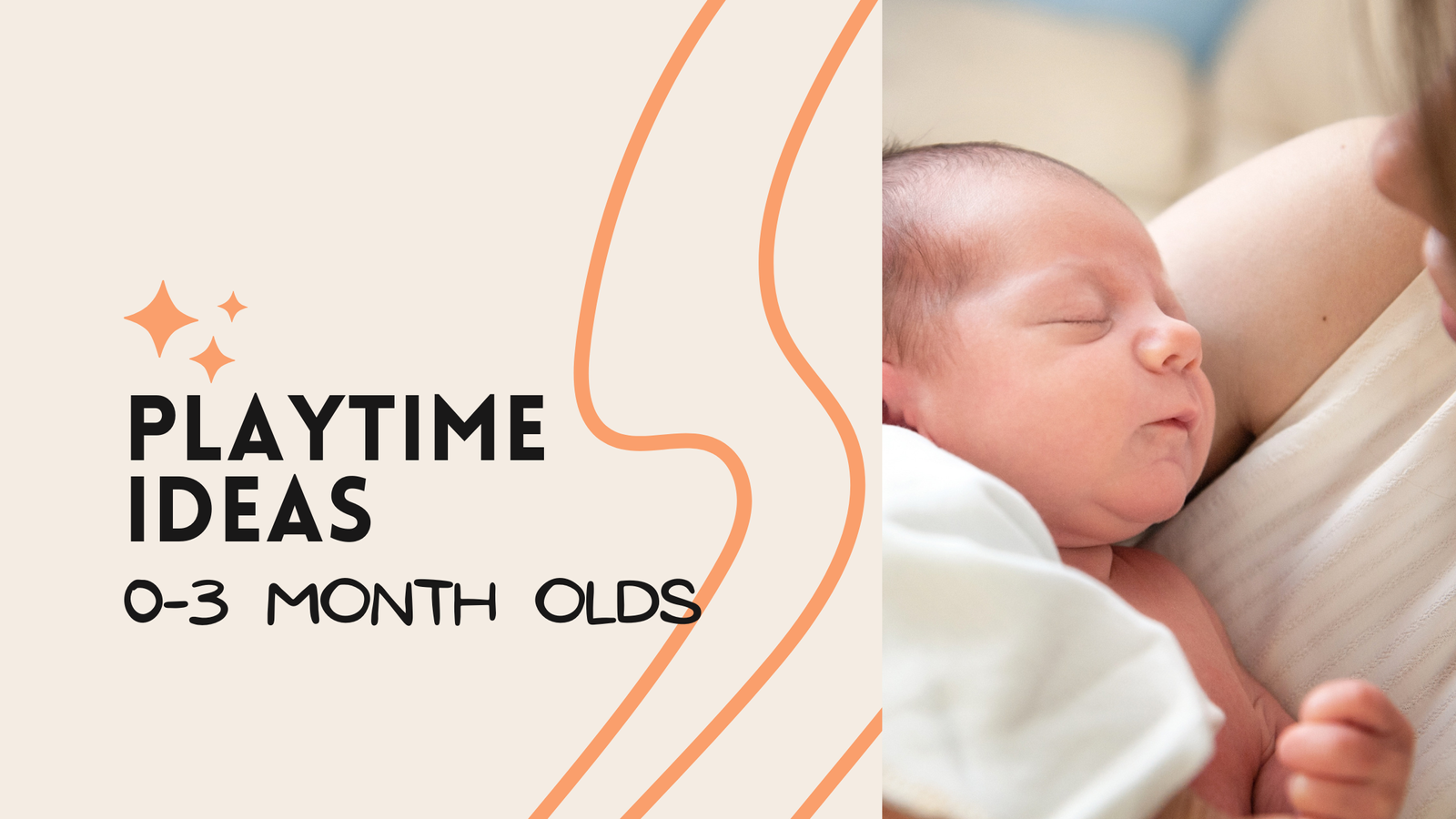Overview
You officially have a 1 month-old baby! You are probably starting to get the hang of this parenting thing and starting to feel more confident than you were just a few weeks ago.
At one-month-old, your baby is starting to stay awake for longer periods of time. This means more cuddles and playtime. They are also beginning to focus on and track items with their eyes. They will also start to extend their arms and legs; however, movements will still be done in jerky motions.
One-month-old baby milestones
Vision & hearing
At one-month-old, your baby can focus on items that are 8-12 inches away from their face. Babies at this age still cannot perceive colors very well and will prefer high-contrast black and white photos. They will be able to focus on your face while you are feeding them or holding them close.
Hearing at this stage is fully matured. Your baby may turn towards familiar voices and sounds. Loud and unexpected sounds should initiate the startle reflex.
Physical movement
Most movements done by your baby at one-month-old are due to reflexes. These movements are not yet intentional. Your one-month-old should be able to move their arms and legs in a jerky, unintentional motion. They will be able to bring their hands to close proximity to their face and may put them into their mouth. When laying on their tummy, your one-month-old should be able to move their head from side to side and lift their head for short periods of time.
Emotional & social
Your one-month-old baby will be able to start making different facial expressions. Your baby can purse their lips, furrow their eyebrows, widen and squint their eyes. Around 6 weeks, your baby will begin to smile in response to your actions.

Sleeping guide for a 1-month-old baby
A one-month-old baby should be sleeping around 14-18 hours each day. These sleeping hours should be split between nighttime sleep and several daytime naps. By 1 month, your baby will start to stay awake for longer periods of time, usually around 1 hour. This means that your baby will have a wake period of one hour to eat and play, then will go down for a nap, waking again for another one-hour period before having another nap.
Naps at this stage can be fairly unpredictable. You may find that your baby will sleep for only 20 minutes for one nap, and 2 hours for another. During the daytime, try to wake your baby every 2 hours for a feeding. At night, you can start to leave them for longer periods of sleep. Do not expect your baby to sleep through the night yet. Your baby should wake 2-3 times during the night for a feeding.
Remember to keep day and night separate to help set up an ideal sleeping schedule. During the day, keep the house brightly lit and interact with your baby as much as possible. At night, keep the room dark and avoid stimulation during feeds and diaper changes.
Feeding guide for a 1-month-old baby
How much should my baby eat?
At one-month-old, your baby will still be eating several times a day – every 3-4 hours. At each feeding, a bottle-fed baby will eat around 4 ounces, totaling around 24 ounces each day. Breastfed babies may feed more often, as they may not get in a full serving at each session. At this stage, breastfeeding should be done on-demand, whenever your baby is hungry.
What can my 1-month old baby eat?
The only thing 1-month-old babies should be eating is either breastmilk or formula. At this age, the digestive tract is not mature enough for solid foods. You may wonder if you should be giving your baby water; however, at this stage, babies will get all their water needs from the milk they are drinking.
How do I play with my 1-month old?
Since your one-month-old baby is still limited in their movement, the best play at this age is simply interacting with you. Make sure to hold your baby close and make different facial expressions and noises to get your baby’s attention. You can also shake rattles and other noise-making toys to get their attention. Reading and singing to your baby are also great activities that your baby is sure to love.
Don’t forget to make tummy time a part of your daily routine. This will help your baby gain neck and core muscles to help them move around. Place a blanket on the floor with high-contrast pictures and mirrors set up to give your baby something to look at.
How to care for my 1-month old baby?
Health check
Your baby will have a one-month well check at their doctor’s office. During this appointment, their length and weight will be recorded and compared to previous records to ensure they are growing well. They will also have a physical examination. This will include checking their eyes, listening to their heart and lungs, and checking their hips. Make sure that you go over any questions that you may have with the doctor.
Sleep safety
Continue to place your baby on their back for sleep. Make sure there are no other items in their crib or bassinet, including pillows, blankets, and toys. Ideally, you should be sleeping in the same room as your baby; however, you should not be sharing a bed.
Schedule for a 1-month old
At one-month-old, your baby’s sleeping habits will still be a little unpredictable. Therefore, a schedule may be difficult to follow. At this point, try to have your baby go down for nighttime sleep at the same time every night. It may be helpful to have a nighttime schedule to help them decipher the difference between nighttime sleep and daytime naps. An example of a bedtime routine may include bathtime, diaper change, and pajamas, story, and song, then cuddles and place into the crib.




